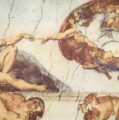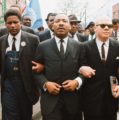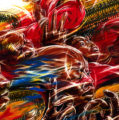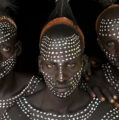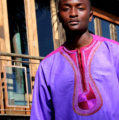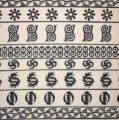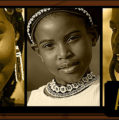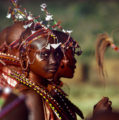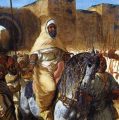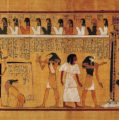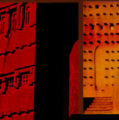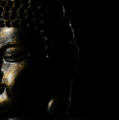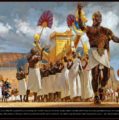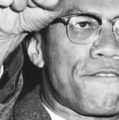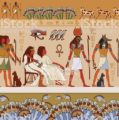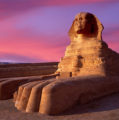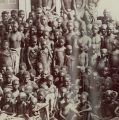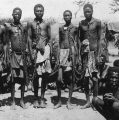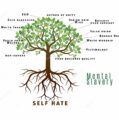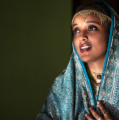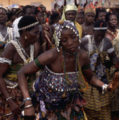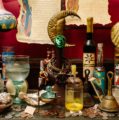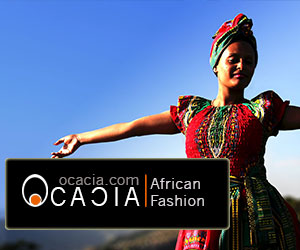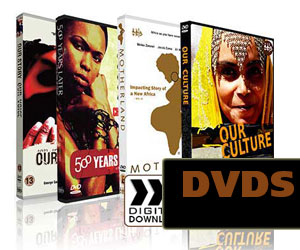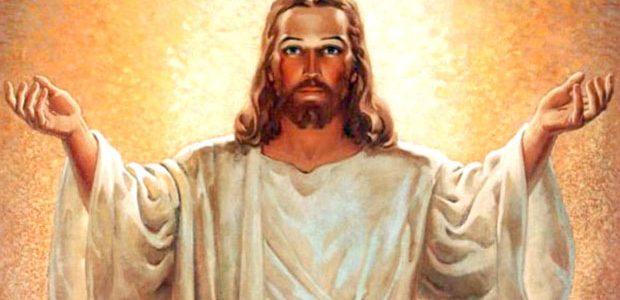
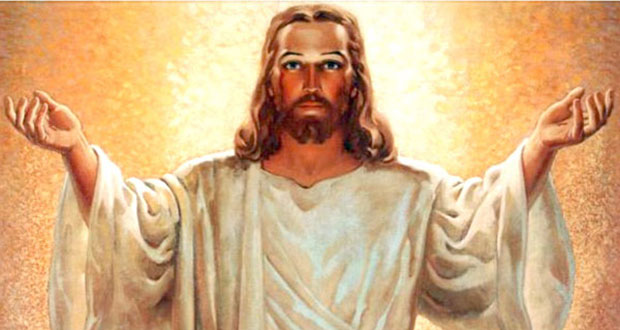

The Role of Religion in African Enslavement
Several things preserved us as an African people throughout the Holocaust of enslavement: The first and most important thing I think is our deep spiritual roots. Our capacity to believe in our humanity and to hold on in despite of the most dehumanising situation –Maulana Karenga
See War Myth
Enslaving people has been wrong 50,000 years ago as it is wrong today. It is like killing people: That has never been right. Cannot become right. Will never be right. Then why is it inside religion comfortably? If religion represents God voice on Earth then does God not know enslaving people is wrong? Did he not know this in Genesis? Sure Islam is all about freeing the slave proving once again that slavery is not a natural condition of people. But why did it not just ban it full stop like worshipping idols or eating pork? And when it comes to Judaism well slavery is just part and parcel of the Judaic landscape. Unfortunately it does not stop with Abrahmic faiths. Most religions found among nation-states in Africa also tolerated varying forms of slavery with no moral outrage.
The role of slavery and enslavement of African people is one of the great controversies in popular debate. Religion, especially and almost exclusively Christianity, followed by Islam (with the rise of Islamophobia) are isolated as the greatest culprits in the enslavement of African people. And this is a little odd from an honest point of view since slavery clearly predates these religions, moreover humans have never needed much motivation (religious or otherwise) to do harm to others. It would be fair, but less alarming, to suggest greed and human moral corruption need all of our attention. And maybe this scapegoating of religion is not only inaccurate, but also not constructive. Nothing here suggest that the discussion of religious institutions and slavery is not a critical discussion, but the primary issue is that how do we conduct that discussion and for what purpose?
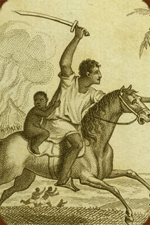
Muslim Stealing African
There is not one major indigenous African faith that had an issue with slavery. No one did as long as it made them rich.
There is a terrible disease destroying the dream of Pan-Africanism, it is a world disease of intolerance. It has already laid waste to most of history and again it returns to destroy what is left of us, as Africans and as humans. We must put our foot down and ask ourselves, “where is this going to end, if we continue at this rate”. And there are only so many options to consider. We can continue fighting and arguing; Islam is not going to convert to Vodon, nor will all Christians become Muslims.
So argue, curse and hate, the religious demographic will stay in perceptual antagonism to the day of judgment. Or the second option is understanding, tolerance and inclusion. It is a choice humanity has to make, there really is no alternative. People will not follow the atheist an abandon religion so as Kwame Ture said we must use these religions for unity–not division.
HATE IS EASIER
Hate has always been easy, it is sweet to blame “the Other.” And in the passion of hate and simple one word explanations for complex human problems religion is an easy target. And we live in a post fact society that reacts on passion with very little reflection or balance. The very same person on social media blasting religion usually has no interest in history.
And none of this is to suggest the discussion of religion and slavery is without merit. It is a serious study but one which requires context and balance. And the undue weight given to the discussion in popular YouTube/Facebook circles is a great problem. It is not a discussion to further understand slavery, but just to attack religion. The outcome of these discussions is not deeper research into all areas of slavery, but a terminal adventure in a new thing to off-load hate onto.
THE NEW RELIGION
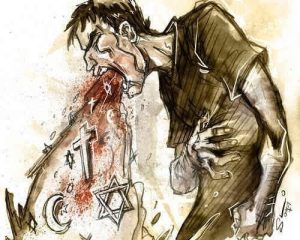
Rise of the Atheist
What many do not realize is the politics of atheist in our society and the deeper politics behind the focus on religion. Africans are a very religious/spiritual people. And in our times there has been a strong undercurrent from atheistic politics. We now hear about Africans who are atheist, but that is odd since one of the most ubiquitous features of any African identity is religion, just as much as skin color. Africans have a deep reverence for divinity. It defines us. And just like homosexuality, and feminism targeted the African family, the atheist today is seeking to destroy that thing so central to our connection to the spiritual world. And again, religion and slavery is only being discussed to push hatred of religion. There is no other purpose for the conversation.
And any study rooted in such binary politics is no use to anyone. We do not study the past to hate, but to understand the mechanisms at work to promote the good, and cast out the bad. If the simplistic conclusion is “My ancestors were enslaved by Christians, hence I hate Christians” then that kind of logic will have you hating everything else. You might have to hate TV, books, Ethiopian history, everything because we can also include those things in the paradigm of “Making slaves.” And again, it is very interesting that the most obvious factor in oppressive systems like slavery is human greed, and intolerance, exactly what these types practice. So what is the lesson learned from history?
NO EXCEPTION
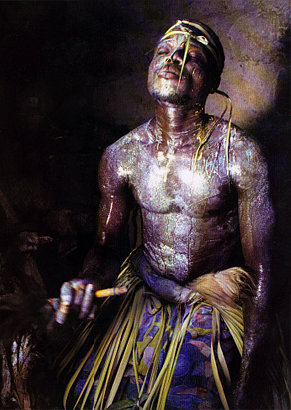
Vodon Cermony
There is not one major indigenous African faith that had an issue with slavery, not one African native religion had principles that denounced slavery. Between the most aggressive slavers in West Africa such as Oyo, Benin, Igala, Kaabu, Asanteman, Dahomey, the Aro Confederacyl – none of them Christian or Muslim. And there is a trend that needs to be smashed in African communities where people who are not Christian or Muslim seem to pride themselves in pointing out the role of these Abrahamic faiths in the enslavement of Africans. And it is problematic on many levels. Because if the great issue is the casual association of say Christianity and slavery, then you have to make the same conclusions about Traditional African religions and their role in slavery. Some people might argue that Islam, in this example, played a greater role. But that is only because Islam was more populous and had a clearer identity as a distinct religion.
None of the major non-Abrahamic religions had any principle objections to slavery. Therefore, the challenge which is posed to Islam and Christianity for having a tolerance for slavery is also true for the religions native to Africa. The only true difference between Islam and Christianity and indigenous faith is power. They had more power to destroy and had the added side-effect of carrying the culture of the conquering party: may that party be Arab, European, or another African group (see Songhai and Mali).
PARADIGM SHIFT
And today the old urban legend of religion and oppression is invalid. The new tools of oppression hide themselves in western democracy. And that Trojan horse contains the soldiers of the free market, globalization and debt. False focus is a death sentence when worrying about a spider when a lion is about to pounce.
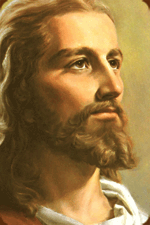
Jesus ?
Islam, Christianity, and what became known as Vodun all fell prey to human greed. All were used to enhance the position of the slavers. So in native African faith based societies (Dahmoney especially) the rituals which were set-up for purity and celebrating the deities became an opportunity to acquire more captives.
Life is diverse enough to respect the good in something while cursing the bad. Rome was a tyrant where Africa was concerned. But it doesn’t mean every last thing in Rome was vile. Our world is far too sophisticated for such simplistic deductions. Ships carried every African from the Motherland to Africa (America?), do we curse the ship? Surely without ships there could never have been slavery. Planes were used to drop poison on Ethiopia, do we curse the planes or science?
What in the message of Jesus said “Go to African and get as many Africans as you can?”, Where in the Qur’an does it say “Where ever you find a Black make him a slave“? Democracy right now is making a job and a half of creating new colonies, this does not invalidate the principles of democracy just because of Obama and Bush’s misuse.
MENTAL ENSLAVEMENT
If these mainstream religions are the principle agent of mentally enslaving people why is there the same problems existing in countries that do not have the influence of these faiths? Does Benin have some superiority claim over Ethiopia? But if the argument was correct then we should see this. We should see more agency in Benin than in Islamic-Christian Ethiopia. Because if these Abrahamic faiths, as separate elements, are enslaving people then how do you explain Ethiopia’s rich and power history? In treating a prostate cancer it is usually a good idea not to cut out the bladder and leave the prostate. Mis- identifying religion is a detrimental to Africa; it is only convenient for people who do not want to waddle through the complexities of the Africa’s problem. And the language of “destruction and domination” is political language, not historical language. The script destroyed oral tradition, the car destroyed the donkey, the CD destroyed the record, and the sampler destroyed the musical instrument. It is no different with culture and religion anywhere.
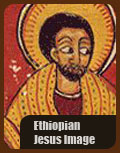
Ethiopian Historical image of Jesus
Many religion or spiritual systems, for hundreds of years, in West Africa practiced, and still practice, Trokosi: The giving of virgin girls to the gods for services or religious atonement. Similar practices were also found in the royal court of the Kingdom of Dahomey (in what is now Benin), in the 18th and 19th centuries. Wives, slaves, and in fact all persons connected with the royal palace of Dahomey were called “ahosi”, from “aho” meaning “king”, and “si” meaning “dependent” or “subordinate.” In traditional Efik societies It is believed that Abassi gave certain tribesmen the ability to heal the sick through necromancy. If the witch doctor was unable to heal the ill person, they were thrown on a fire because it was believed that Abassi did not want them to be healed. So we must understand the “flaws” of spirituality and religion are not exclusive to the Abrahamic faiths. And with the coming of Islam many of these harmful practices were destroyed. Islam was not selective and some serious aspects of culture were also washed away with its rise. And this must be considered in a holistic understanding in presenting valid arguments regardless of our position on religion and Africa.
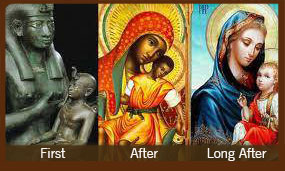 More wars are caused over land and resources than God. The largest wars in human history had nothing to do with religion. Even during the crusades (which were supposed to be a Muslim-Christian conflict), the crusaders killed many non-Western Christians. However, far more emphasis has to be placed on greed, wealth disparity, and its effect on the human condition. In the absence of religion, slavery would have taken place. In the absences of democracy and communism, wars would have taken place. If we look at the most ruthless dictators most of them do not kill in the name of religion, (Mao for example said religion was poison). The problem with Mao et al was religion competed with him as a god-head. The biggest wars in history are not really in the name of religion; even the crusades were about Europeans acquisition of trade routes, which Muslims controlled. Outside of Islam and Christianity slavery existed, the largest slavers on the continent were neither Muslim nor Christian. All arguments support that religion is not the primary agent in the oppression of Africa, now or then.
More wars are caused over land and resources than God. The largest wars in human history had nothing to do with religion. Even during the crusades (which were supposed to be a Muslim-Christian conflict), the crusaders killed many non-Western Christians. However, far more emphasis has to be placed on greed, wealth disparity, and its effect on the human condition. In the absence of religion, slavery would have taken place. In the absences of democracy and communism, wars would have taken place. If we look at the most ruthless dictators most of them do not kill in the name of religion, (Mao for example said religion was poison). The problem with Mao et al was religion competed with him as a god-head. The biggest wars in history are not really in the name of religion; even the crusades were about Europeans acquisition of trade routes, which Muslims controlled. Outside of Islam and Christianity slavery existed, the largest slavers on the continent were neither Muslim nor Christian. All arguments support that religion is not the primary agent in the oppression of Africa, now or then.
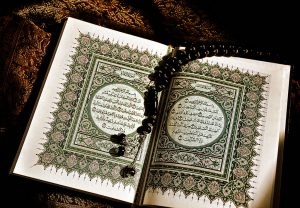
Qur’an and Slavery
It might not be right, but one thing we need to swallow is that all “advances” and “civilization” is the product of degrees of imperialism and conquest: Take a look at Ethiopian history. Kmt in her brutal conquest of Nubia, and Nubia’s conquest of Kemet? Or the bloody Mfecane of Shaka Zulu as he forcible united the Ngoni people. If our primary issue is with conquest, then the only thing to celebrate is hunter-gatherer societies. There is a profit from conquest which every society of technological sophistication has inherited, and we must deal with this. The human challenge is therefore how to advance without exploitation.
VICTIM MINDSET
Terms like “Islamic Invasion” and “foreign religions” are painted all over African history as if this was the only process by which Christianity and Islam came into Africa. Islam has been a native part of the African landscape for 1418 years, Christianity for 2000 and Judaism for far longer. Yet history paints Christianity in Europe as if it was fundamentally a European institution. Europe Europeanized Christianity just like how they paint Buddhism in China as if its origins where Chinese. So the notion of Christianity being a European project needs to be challenged. They were Churches in Africa long before the Vatican.
Europeans and Arabs did not walk into Africa to enslave Africans because of a deep hatred for dark skinned people: The primary motive was profit. South African apartheid was the same. It was a system, which protected European privilege and opportunities. Race was used as a justification to secure this privilege and most found justification in the Bible, the same Bible that Martin Luther King and Nat Turner used for liberation.
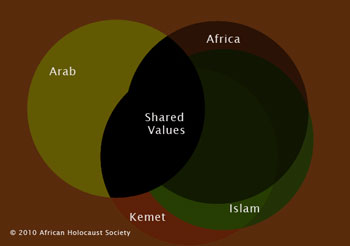
Identity model of similarity
If someone’s religion informs their lives to be righteous, care for the sick, to feed the poor and stand up against oppression and inequity, to speak truth in the face of lies, to seek social advancement, to feel guilt when in error, to be critical of self, to have honor in the face of challenges, to treat others with respect and dignity, to be equitable in business, to be fair in all dealings and to do the work necessary for progressive advancement of humanity; then that is a good religion. It makes no difference what you call that religion or where it comes from if it does not function in cultivating a better human being.
Regardless of what is published, all great nations achieve greatness by solidifying polities and empires around spiritual or political uniformity: Kemet did it, Songhai did it, and Aksum did it. Therefore, religious or ideological conformity has been at the backbone of greater human conglomerations.
And even in Rome with its many gods and plural religious ideology there was political uniformity on the notion of “being Roman. “As is the case with the Pax-American national identity and culture of diverse groups of immigrants. The God concept does not survive long outside of the bottle of religion; religion is an institutionalized set of rituals which securely pass on the God concept from generation to generation. The paradigm shift demands a new center of gravity in revisiting these facts as they are inseparable from human sociological development.
Many of the philosophies manifesting in the Diaspora are claiming Africa origins but are inefficient at navigating the moral corridors of life. While there are academic ring-tones and sound bites, they fail to have systems, which address the human spiritual thirst. Their subjects are left wanting; floating spiritually disconnected to be ultimately annexed in the worst expressions of Eurocentric conduct or the primitive world of spookism.
It might not be right, but one thing we need to swallow is that all “advances” and “Civilization” is the product of imperialism. Take a look at Ethiopian history. Kmt in her brutal conquest of Nubia, and Nubia’s conquest of Kemet? If our primary issue is with imperialism, then the only thing to celebrate is hunter-gatherer societies. There is a profit from imperialism which every society of technological sophistication has inherited, and we must deal with this.
SPEAK THE ETHICS OF THE FAITH
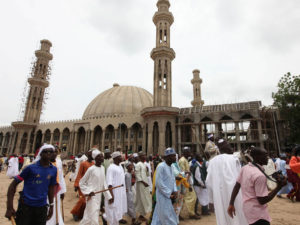
Mosque in Nigeria
Let us begin with de-focusing the labels (names which religions go by). Why not have a debate around values? The question of what are the components within any given religion that foster development for African people. Islam is just a name for a collection of values which constitute the religion of Islam and govern adherents to that faith. It is almost immature to have a debate about cultural displacement in Africa with the rise of Islam if you do not identify the core value changes of each given society. Because the minute the debate switches to value formations which grow out of the ideology of Islam we find the entire discourse changes. Because are we saying given alms to the poor, was alien to Africa? Are we saying an egalitarian society is harmful to Africa? Circumcision, animal sacrifice? This needs to be the new platform for debate because once we identify values then we quickly realize the names are immaterial in unifying the continent. As Karenga said we need to discuss the ethics of the religion and then we will see we all are generally on the same page.
If our objective is at we state, Pan-African unity, how are we going to get there? How will we get if we are divided along the color line? How will we get there by letting borders divide us? And how will we get there by letting religion divide us? Those using religion to cause tension, or those using religion as a tension are one in the same. How can it be Pan-African if it is not tolerant of ethnic, religious, color, national differences among African people?
PICK ON RELIGION
Constantly poking at Islam and Christianity does not to solve any inherent problem within those systems. If 90% of the people you are trying to unite belong to those faiths then agitation will only be met with resistance. The options are leave the topic alone or seek to Africanize these faiths, the same way Europeans Europeanized Christianity in the form of the Roman Catholic Church or how the Chinese converted India
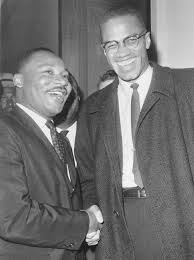
Martin (Christian)and Malcolm X (Muslim)
n Buddha into a Chinese cultural treasure. Islam is the fastest growing religion in Africa and is virtually immune to the taunts of the all-powerful USA, so what about the less than 0.001% of self-branded Afrocentrics? The basic political intelligence tells us unity does not require uniformity and all those seeking to divide are nothing but false prophets lusting for their own shortsighted egos. At best, they sell more books by appealing to the intellectual fast-food junkies looking to feed hatred by attacking easy targets. But ask what is the solution? No real remedy except to place people in a spiritual wasteland.
With Islam Malcolm X became one of Pan-Africa’s greatest heroes. And with Christianity Garvey created the floor on which we all stand. With Islam, the libraries of Timbuktu were built preserving the histories of Africa. And with Christianity the greatest East African Kingdom of Aksum forged its way and annexed Southern Arabia. With a Middle Eastern religion, Europe went onto conquer the world, at what point in their history did they stop and cast out these religions lamenting the gods of old? At what stage in the greatness of China, past and present did Buddhism interrupt their glory? So why is Africa the only continent that cannot take these spiritual technologies and make them serve her interest?
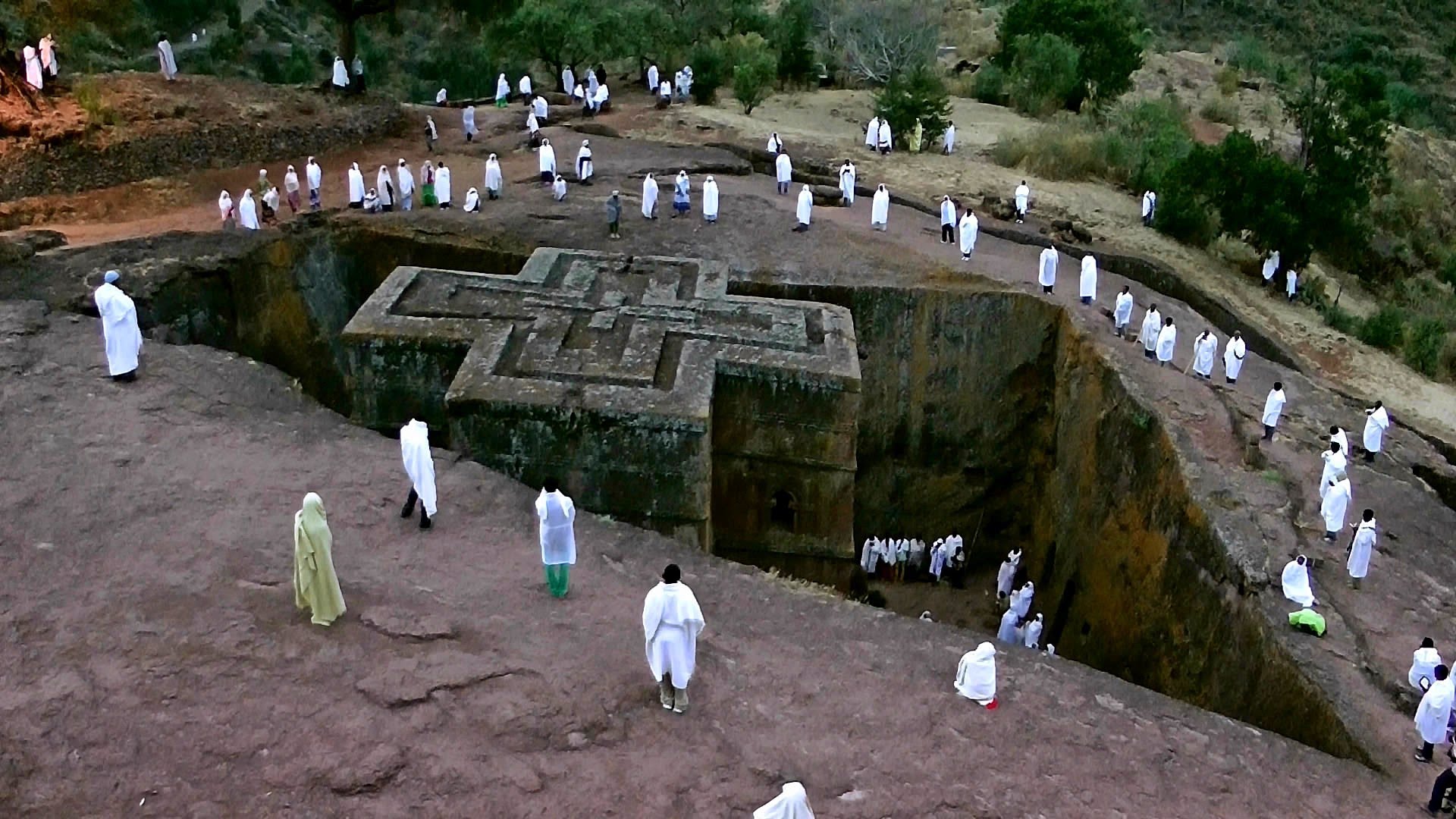
Ancient Lalibella church in Ethiopia
There is not one major indigenous African faith that had an issue with slavery. No one did as long as it made them rich. Therefore, the challenge which is posed to Islam and Christianity for having a tolerance for slavery is also true for the religions native to Africa. If these mainstream religions are mentally enslaving people why is there the same problems existing in countries that do not have the influence of these faiths? Does Benin have some superiority claim over Ethiopia? But if their argument is correct then we should see this. We should see more agency in Benin than in Islamic-Christian Ethiopia. Because if these religions as separate elements are enslaving people then how do you explain Ethiopia. In treating a prostate cancer it is usually a good idea not to cut out the bladder and leave the prostate. Mis- identifying religion is a waste of time; it is only convenient for people who do not want to waddle through the complexities of the African problem.
Now Islam did destroy some good aspects of West African culture but how do we weights this from the comfort of our current location in time? One might as well say anything that changes is destruction; The script destroyed oral tradition, the car destroyed the donkey, the CD destroyed the record, and the turntable destroyed the musical instrument.
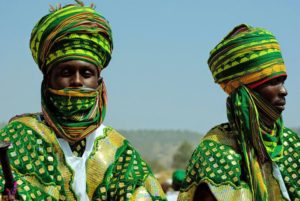
Muslim Hausa in Nigeria
Islam has been used to impose Arab culture, but this is because Africa was lacking agency. Turkey held its own, so why don’t we? And yes Christianity was the excuse used to drive a trade in Black skin. It was also the vector for mental slavery. None of this is in denial. No where in history do cultures stay static in a world in motion, change is part of the cycle of life. And just as in life, after the fire the rains come and bring life. The challenge is realistically salvaging from the ashes of history a clean place to start from.
In the northern parts of West Africa, human sacrifice had become rare as Islam became more established in these areas such as the Hausa States. There was a rise in general justice, education, nation building, health, etc. We must be careful judging good and bad with our modern eyes because we take for granted many moral norms were absent in the historical record. For example we all know you don’t kill a man and take his wife, or steal someone’s car if it is unattended. But in antiquity this would not have been considered a problem. The Afar of Ethiopia have no problem with any of the above, so clearly this African habit which is not unique to the Afar is a problem in modernity. Because our first location is truth, which harmonizes our lives verse leaves us at risk. In Islam there is a tradition of justice, in some ancient African systems in the belly of the Sudan if the rains do not come they killed the king. In other victims had to be ritually sacrificed to feed the lust of gods. Now these are some extreme examples but we must be realistic when we understand that the world we recognize as civil has a lot to do with the morals, which come from Islam and Christianity. And to finalize the most critical point both Islam and Christianity as well as Judaism are philosophical children of Ancient Kemet, an African civilizations. Now Kemet spiritual systems are physically dead and it is neither practical or wise to reprise them from the dust of the Nile Valley. What we do have in front of us is a continent which is either Christian or Islamic. Which path makes more sense to fix the dilemma of Africa? Convert everyone or Africanize these faiths?
Curse of Ham
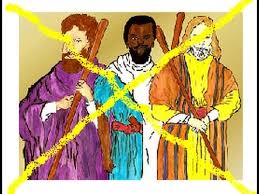
Curse of ham
The claim that Noah, the biblical father of all subsequent humanity, cursed his son Ham with both blackness and the condition of slavery for looking at him drunk and naked and exposing him to his other sons, Shem and Japheth. In fact Ham was not cursed and his association with black slavery does not appear in the Hebrew Bible.
Noah cursed Canaan–the ancestor of the Semitic Canaanites, who occupied Israel before the Hebrews–to be the “servant of servants.” Why Noah was upset with Canaan we are never told according to some sources it was for a homosexual act “looking on his nakedness”. Ham’s African sons were Cush (Ethiopia), Put (Libya), and Misraim (Egypt)–and they were not cursed.

